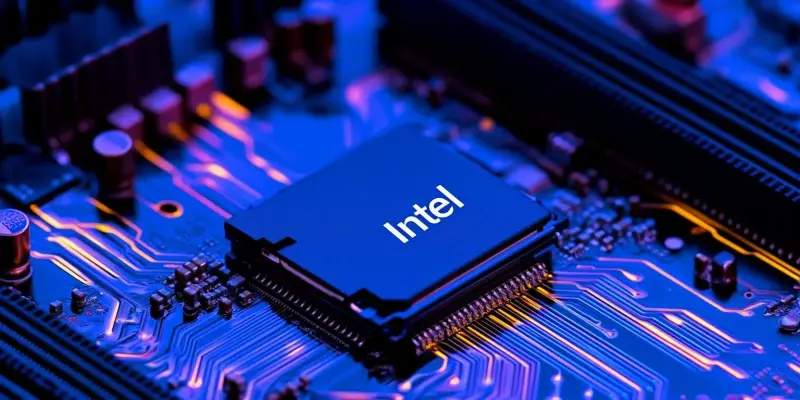Intel’s latest endeavor to enhance the performance of its Core Ultra 200S CPUs has yielded impressive results, bringing a significant 18% increase in average frames per second (FPS) in games like Cyberpunk 2077. The performance discrepancies between internal testing and consumer benchmarks prompted Intel to dive deep into the root causes, identifying five key issues that were hampering the CPU’s potential. Among these were problems involving Performance and Power Management (PPM), Application Optimizer (APO), and other critical elements. By addressing these bottlenecks, Intel has successfully made strides in optimizing their latest processors and restoring consumer confidence.
Enhanced Single-Core Performance
Based on recent updated benchmarks, the improvements in Intel’s Core Ultra 200S CPUs are most evident in single-core performance metrics. For instance, the Core Ultra 9 285K saw a remarkable 12.3% increase in single-core performance when subjected to Geekbench tests. Similarly, Cinebench R23 displayed a 5% boost in single-core performance, underscoring the effectiveness of the optimizations. However, it is worth noting that while single-core performance saw substantial gains, multi-core results remained largely unchanged in both testing environments. This disparity suggests that the optimizations were particularly targeted at improving single-threaded tasks, which are often the bottlenecks in everyday computing and gaming scenarios.
Gaming and System Improvements
Intel’s recent initiative to boost the performance of their Core Ultra 200S CPUs has delivered remarkable outcomes, achieving an 18% increase in average frames per second (FPS) in games such as Cyberpunk 2077. Initial performance discrepancies between Intel’s internal tests and consumer benchmarks led the company to thoroughly investigate the root causes of these variances. They identified five principal issues that were hindering the CPU’s full potential. Among these problems were deficiencies related to Performance and Power Management (PPM) and the Application Optimizer (APO), as well as other crucial factors. By addressing these key bottlenecks, Intel has made significant progress in enhancing their latest processors. This optimization not only improves gaming performance but also helps in restoring consumer trust and satisfaction, positioning Intel as a leading force in the competitive CPU market. Their meticulous attention to performance issues demonstrates Intel’s commitment to providing top-tier technology solutions for their customers.

